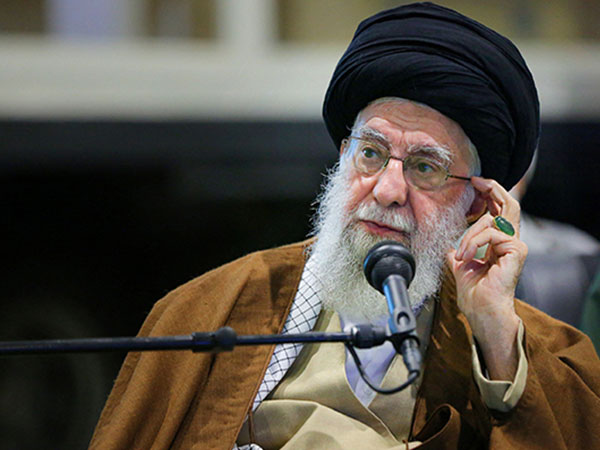
Tehran: Iran's Supreme Leader, Ayatollah Ali Khamenei, has called the United Nations and other European nations the root cause of the problems in West Asia, Iran-based IRNA reported.
While addressing a group of Iranian elites and top students in Tehran on Wednesday, he stressed that the cause of the problem--which results in conflicts, wars, concerns, and hostilities - triggers due to the presence of those who claim to advocate for peace and tranquillity in the region, and called them the United States and certain European nations.
He said that these conflicts and confrontations would completely disappear and regional nations could govern the region and live together in peace and security if these nations stopped their wicked practices in this region.
Khamenei further alleged that these nations provoke a country and cited the example of Iraq's last dictator Saddam Hussein, which he said, resulted in hard and bitter situations, according to the IRNA report.
He said that after Saddam's death, his supporters were gone too, and the bond between Iran and Iraq strengthened, particularly during events like the Arbaeen pilgrimage. He said that those claiming to advocate for regional peace are the main source of problems in the region, IRNA reported.
Khamenei expressed grief over Lebanon's Hezbollah leader, Sayyed Hasan Nasrallah's killing and added that his death is deeply felt, terming it a major event, according to the IRNA report.
He said that he would make a statement on Lebanon's situation and Nasrallah in the near future.
The turmoil in West Asia escalated after Iran launched nearly 200 ballistic missiles towards targets in Israel and the United States military coordinated closely with the Israeli Defence Forces to help defend Israel against the attack.
US Naval destroyers joined Israeli air defence units in firing interceptors to shoot down inbound missiles.Israeli Prime Minister Benjamin Netanyahu described Iran's missile attack on his country as a "big mistake" and said "Tehran would pay for it."
"Iran made a big mistake today and will pay for it. The Iranian regime does not understand our determination to defend ourselves and our determination to take revenge on our enemies," he said.
Meanwhile, the Israeli Defence Forces (IDF) spokesperson, RAdm. Daniel Hagari, described Iran's attack as a "severe and dangerous escalation.""There will be consequences. We will respond wherever, whenever and however we choose, in accordance with the directive of the government of Israel," said Hagari regarding Iran's large-scale attack.
A day after Iran targeted Israel with a rocket barrage, the Israel Defence Forces (IDF) called on Lebanese civilians in two dozen villages in southern Lebanon to evacuate immediately.
"Hezbollah's activity forces the IDF to act against it. The IDF does not wish to harm you. For your safety, you must evacuate your homes immediately. Anyone who is near Hezbollah operatives, their facilities or their weapons, puts themselves at risk," Colonel Avichay Adraee, the IDF's Arabic-language spokesman, said in a statement on X.
The Israeli military said it will update the civilians when they can return. On Tuesday, the Israeli military issued similar orders to 28 other villages in southern Lebanon.
The Israeli military has described its ground operations in southern Lebanon as "limited, localized, and targeted raids," with the goal of demolishing Hezbollah's infrastructure in the border area.
On Wednesday, following Iranian attack against Israel on Tuesday, the Chief of the General Staff, LTG Herzi Halevi, spoke with the Commander of Centcom General Michael Erik Kurilla, regarding the current situation.